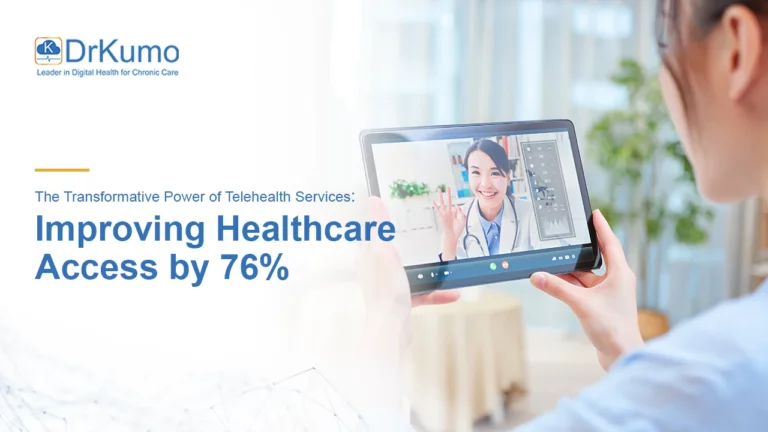Mental illness had been an alarming issue among Americans, fueled by feelings of loneliness and isolation when the pandemic struck in March. The 2021 State of Mental Health in America report[1] states that mental health in the United States continues to deteriorate, that many states are unprepared to deal with the crisis, and that the government has been called on to take immediate action.
In the said report, 19% of adult Americans experienced mental illness from 2017 to 2018. There was an increase of 1.5 million people based on last year’s dataset. Moreover, the percentage of adults in the U.S. who are experiencing severe thoughts of suicide increased to 0.15% from 2016-2017 to 2017-2018 or an additional of 460,000 people from last year’s dataset.
Mental illness chooses no age. In fact, in the above-mentioned report, from 2017 to 2018, 9.7% of adolescents in the United States experience severe major depression. Additionally, 60% of these adolescents were not able to receive mental health therapy. Even in states with the highest availability of resources, many of their residents were left untreated.
Today, with the fast-growing advancement in technology, experts are optimistic that Remote Patient Monitoring (RPM) can help in treating and understanding more patients with mental illness.
Monitoring Symptoms using RPM
Mental illness signs and symptoms may vary, depending on the disorder, circumstances, and other factors. Mental illness symptoms can affect emotions, thoughts, and behaviors.
The most common signs and symptoms are loneliness or sadness, confusion or lack of concentration, excessive fears and worries, extreme feelings of guilt, withdrawal from friends and family members, fatigue, delusions or hallucinations, significant change in eating habits, extreme anger or violence, suicidal thoughts, and even physical pain such as stomach pain, back pain, headaches, or other unexplained aches and pains.
Many of these signs and symptoms can be detected and tracked by Remote Patient Monitoring. RPM uses sensors and wearable devices to measure patients’ physiological data. It then transmits these data to a cloud database, where providers may access the data anytime and anywhere. RPM allows providers to continuously and remotely monitor their patients and adjust their treatment plan, if needed.
This article will discuss how RPM devices may track some signs and symptoms of mental illness.
Smart Scale
One of the above-stated signs and symptoms is an extreme change in eating habits. Weight loss and weight gain are often associated with depression.
In the most recent edition of the Diagnostic and Statistical Manual of Mental Disorders[2], weight loss is one of the diagnostic criteria of depression. Individuals who suffer from depression are frequently unable to eat, thus losing weight. This is often due to little pleasure from eating, and hence they are less driven to do so.
Weight gain, on the other hand, is another diagnostic criterion of depression. It occurs because persons suffering from depression are less likely to engage in energy-consuming activities due to weariness while also consuming a large amount of food in their attempt to comfort themselves.
Using a connected smart scale, providers may track significant weight loss or gain. This will alert the provider whenever a substantial change in their patients’ weight occurs. From there, the provider may take necessary actions, such as changing the patient’s environment or treatment plan in order to prevent unwanted hospitalization.
Heart Rate Monitor
Excessive fear, depression, and anxiety may affect the patients’ heart rate. In fact, it may cause heart palpitation or an increase in heart rate. According to the CDC[3], people experiencing depression, anxiety, stress, and even posttraumatic stress disorder (PTSD) over a long time may experience specific physiologic effects on the body, such as, among others, an increase in heart rate.
Using a connected heart rate monitor, healthcare providers may track if their patients are experiencing anxiety or extreme fear, depression, stress, or PTSD. From the data collected, the providers adjust the patient’s treatment plan to prevent an episode.
Motion Tracker
Psychomotor agitation and retardation are symptoms of a mental illness such as severe depression, bipolar disorder, or schizophrenia.
Psychomotor agitation is a state of restlessness or muscular contraction that is accompanied by mental strain. Psychomotor agitation is typically found in individuals who suffer from anxiety or depression. Psychomotor agitation is characterized by an agitated state accompanied by heightened motor activities. These motor activities which serve no purpose such as strolling around a room, wringing one’s hands, unrestricted tongue movements, pulling on garments, and even up to the extent of harming themselves such as chewing, ripping, or tearing the skin near to their lips and fingernails.
Psychomotor retardation is often referred to as psychomotor disability. Psychomotor retardation is manifested when patients slow down in their emotional and physical responses including how they think and speak, and their physical actions are significantly decreasing.
Psychomotor agitation or retardation may be monitored using connected motion trackers. Healthcare providers may be notified whenever a significant change in their patients’ activities occurs.
Sleep Tracker
According to the National Alliance of Mental Illness[4], around 50% of cases of insomnia are caused by sadness, worry, or psychological stress. Early morning wakefulness, accompanied by low energy, inability to concentrate, sadness, and change in appetite, may indicate depression. On the other hand, a sudden inability to sleep or a significant drop in sleep coupled with an increase in activity may indicate manic behavior.
Numerous anxiety disorders are related to sleep issues. Sleep deprivation is usually connected with obsessive-compulsive disorder (OCD). Panic episodes during sleeping may be indicative of a panic disorder. Sleep deprivation as a result of nightmares may be linked to PTSD.
With the help of the RPM sleep tracker, providers may be alerted if their patients are having sleep problems.
Electrocardiogram (ECG)
The brain is a major component of the nervous system. As such, it stands to reason that decreased Heart Rate Variability (HRV) is connected with stress and mental health problems. Indeed, low HRV levels are associated with loneliness, anxiety, ruminative behavior, and self-criticism. Increased HRV, on the other hand, is connected with increased self-control, the capacity to deal with negative emotions and events, and social involvement.
Using connected ECG, providers may be alerted whenever their patients have low HRV.
Thermometer
According to NCBI, psychogenic fever is a stress-related, psychosomatic disease. Some patients develop extremely high body temperature up to 41°C when they are exposed to emotional events. In contrast, others show the constant low-grade high temperature of 37 to 38°C during situations of chronic stress.
A remotely monitored thermometer will allow providers to monitor their patients’ change in body temperature which may be indicative of an impending mental illness episode.
RELATED ARTICLE: The Connection Between Mental Health and Heart Rate Variability
Conclusion
These signs and symptoms may not indicate mental conditions with ordinary people. But as for individuals dealing with mental issues, these can be an essential indication that an episode of mental illness might occur or is occurring. Detecting early signs and symptoms of mental illness may be the key to proper treatment and also save medical expenses which could otherwise be avoided. Mental illness is a serious condition and providing the right kind of help will sometimes even save the life of the patient.
While it won’t apply to all psychiatric patients and disorders, RPM can help remotely monitor patients and prevent severe episodes of mental illness when they start to manifest. RPM for mental health is still very young and will definitely improve in the coming years.
References:
- The state of Mental Health in America. Mental Health America. (n.d.). https://mhanational.org/issues/state-mental-health-america
- The Diagnostic and statistical manual of mental. (n.d.). https://dhss.delaware.gov/dsamh/files/si2013_dsm5foraddictionsmhandcriminaljustice.pdf
- Centers for Disease Control and Prevention. (2020, May 6). Heart disease and mental health disorders. Centers for Disease Control and Prevention. https://www.cdc.gov/heartdisease/mentalhealth.htm
- Sleep disorders. NAMI. (n.d.). https://nami.org/About-Mental-Illness/Common-with-Mental-Illness/Sleep-Disorders








